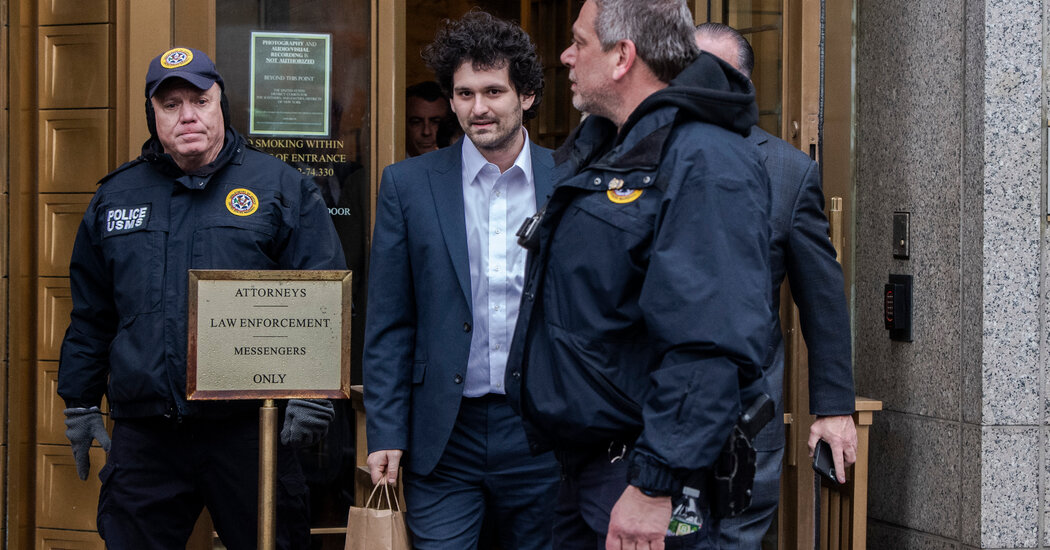Here’s how the former crypto mogul’s 25-year sentence stacks up against the prosecutions of Michael Milken, Bernie Madoff and others.
Two years in prison for tax and securities violations. Eleven years for deceiving investors. A 150-year sentence for the largest Ponzi scheme in history.
The country’s most notorious white-collar fraudsters — like Bernie Madoff and Elizabeth Holmes — have received a range of punishments for their crimes, from relatively short prison terms to effectively a life sentence.
On Thursday, Sam Bankman-Fried, the onetime cryptocurrency mogul, joined their ranks, receiving a 25-year sentence for fraud, conspiracy and money laundering.
Mr. Bankman-Fried was convicted of stealing $8 billion from customers of his international crypto exchange, FTX — charges that carry a maximum sentence of 110 years. In legal filings, prosecutors cited 13 examples of white-collar prosecutions that involved a loss of more than $100 million. In all but two of those cases, the defendant was sentenced to 40 years or more.
Here’s how Mr. Bankman-Fried’s sentence compares with penalties faced by other high-profile white-collar criminals.
Michael Milken
Mr. Milken, once known as the “junk bond king” of Wall Street, was sentenced to 10 years in 1990 for securities fraud, tax fraud and other crimes. He ultimately served only two years, a reward for his cooperation with the authorities. After his release, Mr. Milken started a philanthropic career, raising money for cancer research and other causes.
“Milken’s two-year sentence gave him a second chance,” Mr. Bankman-Fried’s lawyers wrote in a recent court filing. “Given the same chance, Sam would dedicate his post-prison life to charitable works, finding the best ways to help others.”
Jeffrey Skilling
Mr. Skilling, the former chief executive of Enron, was initially sentenced to 24 years in prison in 2006 for his role in the energy giant’s collapse, but that punishment was reduced after an appeal. He eventually spent 12 years in prison.
Bernard Madoff
Mr. Madoff, a Wall Street financier, orchestrated what is regarded as the largest Ponzi scheme in history and was sentenced to 150 years in prison in 2009. He was in his 70s at the time of the sentencing and died in prison 12 years later.
In a court filing, Mr. Bankman-Fried’s lawyers sought to differentiate the FTX case from Mr. Madoff’s fraud.
Mr. Madoff’s customers were “a tight network of families and pension funds that believed they were investing in a conservative vehicle,” the lawyers wrote. “The crypto investor/trader has a very different risk profile.”
Elizabeth Holmes
Ms. Holmes, the founder of the blood-testing start-up Theranos, was sentenced in 2022 to slightly more than 11 years in prison for deceiving investors in her company. Ms. Holmes reported to prison in May, a few months after her 39th birthday.
In a sentencing filing, Mr. Bankman-Fried’s lawyers pointed to “parallels” between him and Ms. Holmes, including their relative youth. But Ms. Holmes “is actually far more culpable,” the lawyers wrote. “She put patients at risk.”
